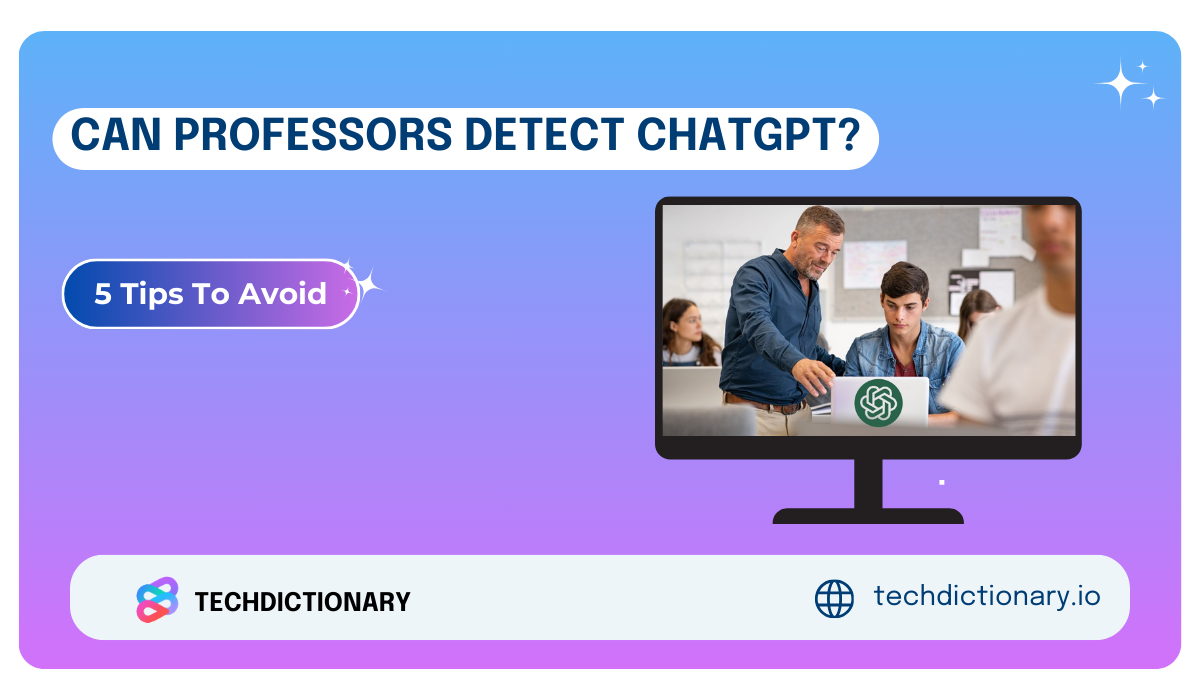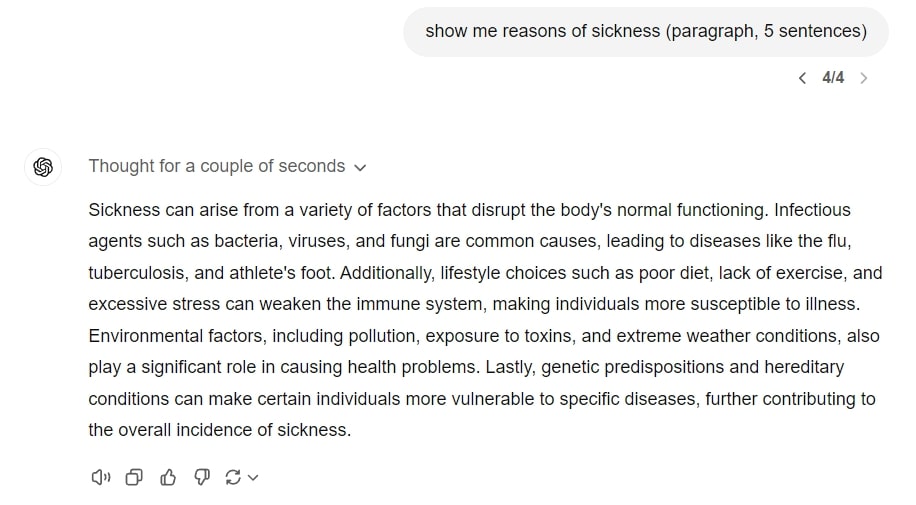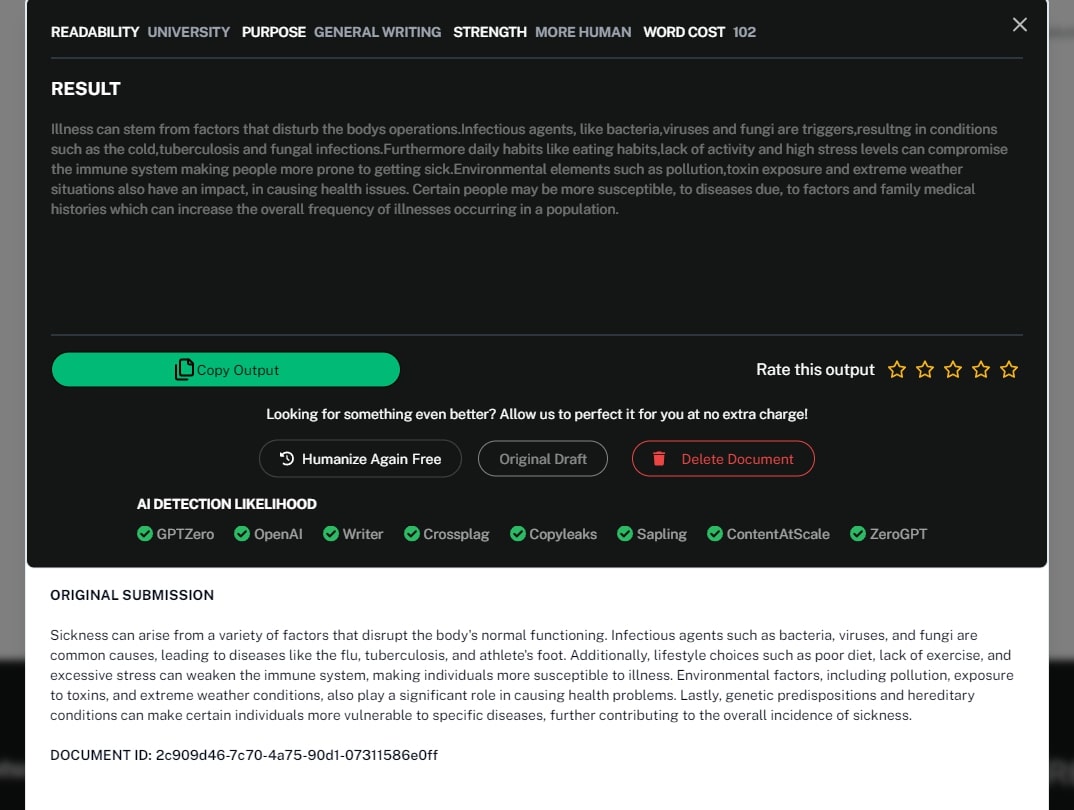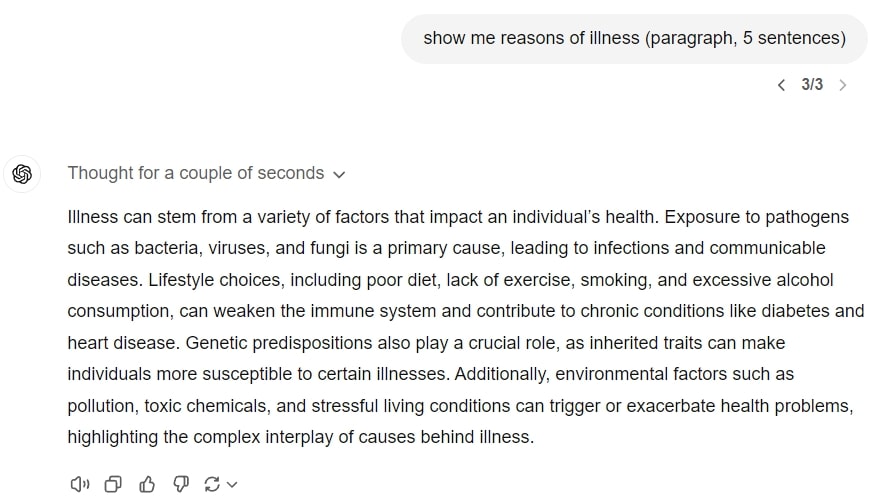
A recent poll found that 56% of college students have utilized AI, such as ChatGPT, for assignments or exams. As more professors and institutions adopt AI-detection software, it’s vital to understand how they can spot AI-generated content and what measures you can take to avoid detection.
In this article, we’ll answer the question, “Can professors detect ChatGPT?” and share five tips to ensure your work remains original. Stay tuned!
Yes, according to a study titled “Testing of detection tools for AI-generated text,” professors can identify AI-generated content created by ChatGPT with a 74% likelihood. The study also notes that since some professors may not directly recognize AI-generated content, they increasingly use AI detectors to point out if something was written by chatGPT.
We get you back with two methods to lower the chances of detection by AI systems.
Note: We previously explained that using ChatGPT for academic work is not advisable, as chatGPT may be flagged for plagiarism.
But first, let’s take a look at how professors can tell if students are using ChatGPT:
Maybe You Are Interested:
Can Turnitin Detect Chat GPT? A Detail Answer in 2025
Can Canvas detect Chat GPT? [Updated Feb 2025]
Can Gradescope Detect ChatGPT? 2 Tips to Avoid AI Detection
Are Medical Schools Checking If You Use AI? Tips To Avoid AI Detection
Manually rewriting AI-generated content helps to make it sound more personal and natural. AI detection tools often look for patterns that are common in machine-written text, so by changing the wording and adding your own ideas, you make the content more challenging to detect. Rewriting allows you to include unique details and a natural flow that AI sometimes misses, making it look more like your own work.
In fact, in the same study we mentioned above, this approach can actually reduce the likelihood of AI detection to 42%.
Additionally, if you understand this method well, you can easily make AI like ChatGPT write the same as a human.
Well, we all know that you are looking for a more efficient way to achieve the same or even better results with less effort. Let’s get right to it now!
AI Humanize is a tool for identifying AI-generated text and making it more human-like. By using AI to modify AI-generated text, you can make chatGPT text undetectable by making it appear to be written by a human. In the study mentioned, the overall accuracy was 26%, indicating that most AI texts go undetected when paraphrased by an AI detector.
One of the best AI humanizers, Undetectable AI can be highly effective in making AI-generated text appear more human-like by rephrasing and restructuring it. This tool rewrites content to avoid patterns typically recognized by AI detection software, making it less likely to be flagged.
Here is the result when we tested Undetectable AI:

A Paragraph from ChatGPT 4
We first ask ChatGPT 4 to create a short paragraph about the reasons for sickness. Then we use an AI humanizer to make the ChatGPT text more human-like. After that, we take the humanized paragraph to check it with the Undetectable AI and Originality AI detectors.

Undetectable AI paraphrases content from chat GPT

Originality AI checks content after humanizing from Undetectable AI
As you can see, the result is quite similar to the study. The content humanized by Undetectable AI is flagged as human writing.
In addition to the Undetectable AI tool, we recommend a few other tools as well as the most detailed ways to avoid ChatGPT being detected.
After using chatGPT to generate text, remember to carefully proofread and edit it to ensure that it does not contain any false information. This not only affects the quality of your work but also makes it easier for your professor to identify text created by chatGPT. Double-check all information that comes from chatGPT.
Remember to check for any awkward or unnatural wording and make formal sentences sound more natural. Mix up the sentence structure and add your own thoughts or examples to make the writing feel more authentic. These changes will help the content flow better and reduce the chances of it being flagged as AI-generated.
When using AI for academic work, follow your institution’s guidelines to maintain integrity. If using AI to generate content, don’t forget to follow your academic guidelines and citation resources strictly. That’s a safe way to make your content authentic and bypass your professor’s detection.
Before submitting your work, consider using an additional AI detector to double-check for any AI-generated content. This will help ensure that such content can pass undetected through common detection tools.

A paragraph from ChatGPT 4
Using a tool like Originality AI allows you to test how much of your content appears to be generated by AI before finally submitting it to your professors. After creating a short paragraph using ChatGPT, input it into Originality AI to verify its detectability and confirm if your humanizing techniques are effective.

Originality AI checks AI-generated Content
Note: Cheating with AI ultimately violates academic rules because the work isn’t your own, and this can result in punishments such as failing, suspension, or expulsion. Using AI in the wrong way contradicts fair and honest academic practices.
Related Article:
How to Prove You Didn’t Use AI in Writing: 7 Tips
10 Effective Ways to Humanize AI Content in 2025 (Tested & Results)
So, Can My Professor Detect Chat GPT? Yes, professors can detect the use of ChatGPT, with a 74% likelihood. With improved AI detection tools, they can easily identify AI-generated content. To ensure that your use of AI supports your learning while adhering to ethical standards, personalize your work, properly cite your sources, and follow your institution’s guidelines.

